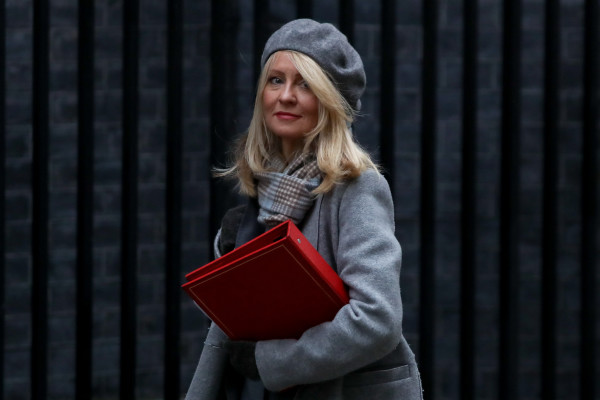

Esther McVey, the secretary of state for work and pensions, has resigned today (15 November) over the Prime Minister's Brexit deal as she claimed it "doesn’t honour the result of the referendum".
Ms McVey, in charge of briefs such as the pension dashboard and universal credit, sent her resignation letter to Theresa May this morning, in the wake of an intense debate among cabinet members last night.
In her letter, she stated the deal proposals "means handing over around £39bn to the EU without anything in return".
She wrote: "It will trap us in a customs union, despite you specifically promising the British people we wouldn’t be.
"It will bind the hands of not only this, but future governments in pursuing genuine free trade policies. We wouldn’t be taking back control, we would be handing over control to the EU and even to a third country for arbitration."
Ms McVey also stated the agreement "threatens the integrity of the United Kingdom", which as a Unionist was a risk she could not be party to.
Ms McVey was the second cabinet minister to resign today, following the resignation of Brexit minister Dominic Raab.
Sir Steve Webb, director of policy at Royal London and former pensions minister, said: "Whoever succeeds Esther McVey at the Department for Work and Pensions (DWP) will have a lot to do as they continue work on universal credit and disability benefits.
"As a result, they will have little time to shape pensions policy. With this in mind the key people shaping pensions policy will remain Treasury and the DWP’s pension minister."
Jon Greer, head of retirement policy at Quilter, said leadership at the DWP had been about "as stable as a mobile home in a hurricane, as a parade of ministers have picked up the baton only to fling it away".
He added: "Setting retirement policy and ensuring we have a well-functioning state pension system is a long-term project which is put at risk if the minister responsible for the DWP changes from one year to the next.
"There are some big ticket issues that cannot be ignored for much longer, such as the future of the state pension, gaps in auto-enrolment and the pension dashboard among many others. However, it seems all this will continue to be on the backburner as Brexit sits center stage at Westminster."
Elected as the MP for Tatton in 2017, Ms McVey was appointed to the work and pensions brief in January when she replaced David Gauke.
The deal with the EU meanwhile has been welcomed by the financial services industry.
It includes the basis for a transition period which will start after Britain leaves the EU on March 29, 2019 and last for 21 months, during which time the UK must abide by European laws such as Mifid II and the GDPR.
If more time is needed to reach a long-term deal, the transition period can also be extended.
Meanwhile, a summit is to be held on November 25 to discuss the deal.
An outline political declaration on the future relationship between the EU and Britain was also published, which highlighted the importance of financial services.
maria.espadinha@ft.com



